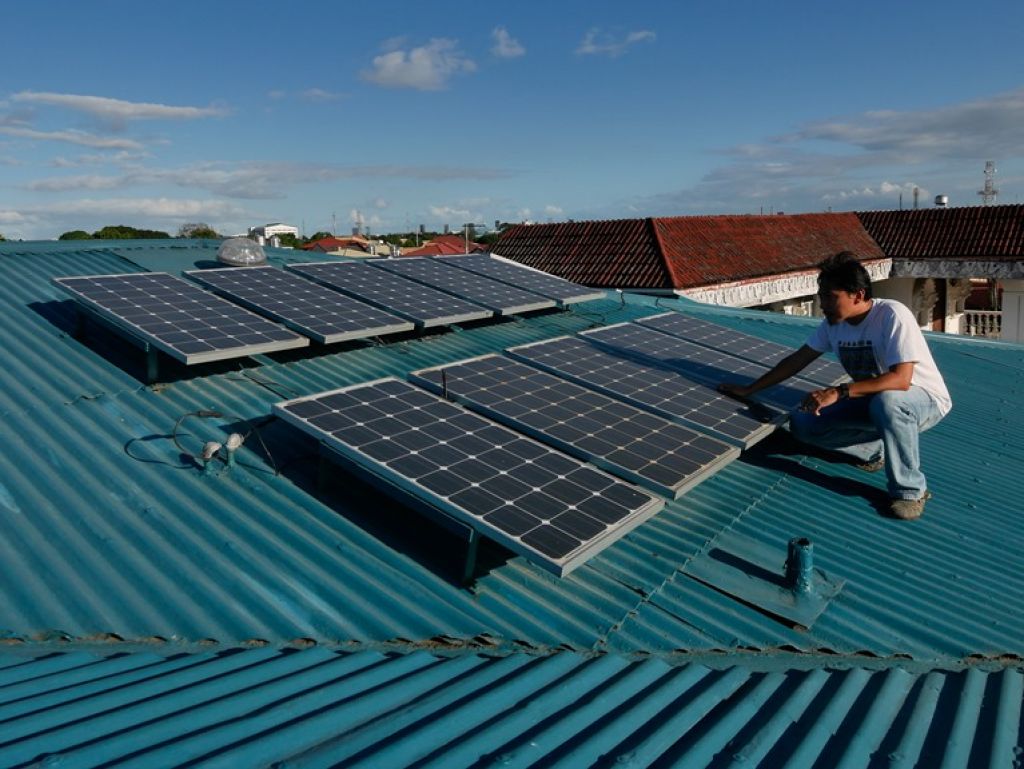
The Asian Development Bank (ADB) has provided US$240.5 million in loans to finance rooftop solar systems in India.
The financing will be offered to the State Bank of India (SBI) and the National Bank for Agriculture and Rural Development (NABARD). SBI will receive US$90.5 million from ADB’s Clean Technology Fund, while NABARD will receive US$150 million, consisting of US$80 million from ADB’s ordinary capital resources and US$70 million from the Clean Technology Fund.
Try Premium for just $1
- Full premium access for the first month at only $1
- Converts to an annual rate after 30 days unless cancelled
- Cancel anytime during the trial period
Premium Benefits
- Expert industry analysis and interviews
- Digital access to PV Tech Power journal
- Exclusive event discounts
Or get the full Premium subscription right away
Or continue reading this article for free
Both banks will provide loans to developers and end-users throughout India to install rooftop solar systems.
The financing will support tranches two and three of the Multitranche Financing Facility (MFF) solar rooftop investment programme approved by ADB in 2016. This programme is a US$505 million multi-tranche financing facility, consisting of US$500 million financial intermediation loans and US$5 million capacity development technical assistance. According to ADB, the tranche two loan was to be provided to the SBI, while the tranche three loan was to be provided to NABARD.
Punjab National Bank is the borrower of tranche one.
Kaoru Ogino, ADB’s principal energy specialist, said the bank’s financing supports India’s goal of achieving about 50% of cumulative installed power generation capacity from non-fossil fuel energy sources by 2030.
According to clean energy market research firm Mercom, India installed 367MW of new rooftop capacity in the first quarter of 2024. This installation total represented a 10% decline from the capacity installed in Q4 of 2023 and a 24% decline year-on-year. In Q1 2024, rooftop solar accounted for just 3.7% of India’s total solar installations.
The rooftop solar sector continues to be concentrated in a few states, with Gujarat, Maharashtra, Rajasthan, Kerala and Karnataka responsible for 67% of new rooftop additions in the most recent quarter.
However, India boasts huge potential in residential rooftop solar as it could reach 32GW with subsidy from the Ministry of New and Renewable Energy (MNRE), according to the Council on Energy, Environment and Water (CEEW).
Earlier this year, the Indian government announced incentives for rooftop solar in its Interim Budget 2024-2025, offering ten million households the opportunity to obtain free solar electricity every month. Indian finance minister Nirmala Sitharaman proposed that free 300kWh of electricity will be provided to ten million households in India every month under the rooftop solar plan. Under the plan, the beneficiaries can save up to INR18,000 (US$216.7) from free electricity and sell the surplus to the distribution companies.
However, Vinay Rustagi, senior director, global head of renewables at Indian analyst firm Crisil, told PV Tech Premium that more details about the new solar programme need to be announced, including customer eligibility, funding sources, timelines and criteria related to installation size and technology.
He commented: “The government needs to clarify the implementation process—the roles and responsibilities of different parties, what kind of technology can be used and eligibility criteria for installers. Also, will it all be government-managed and contracted, or will the consumers be free to choose vendors themselves?”






